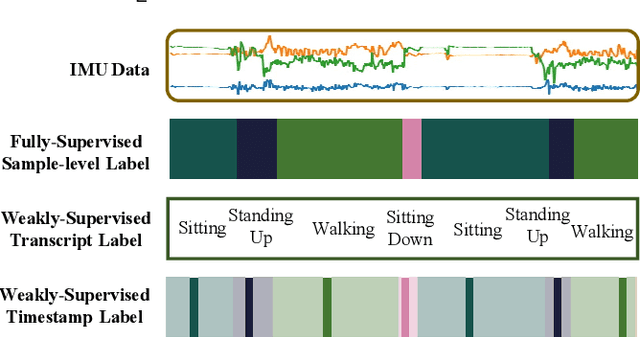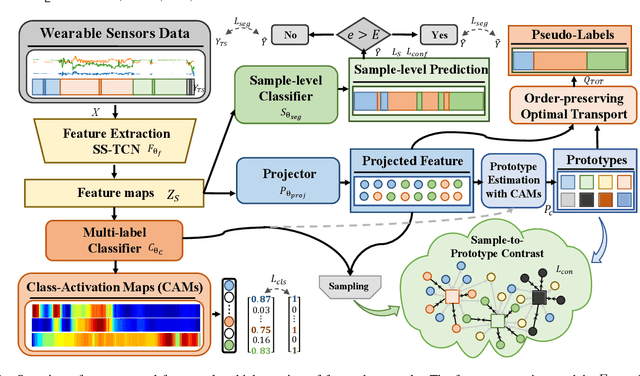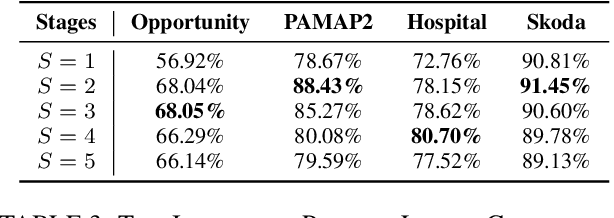Timestamp-supervised Wearable-based Activity Segmentation and Recognition with Contrastive Learning and Order-Preserving Optimal Transport
Paper and Code
Oct 13, 2023



Human activity recognition (HAR) with wearables is one of the serviceable technologies in ubiquitous and mobile computing applications. The sliding-window scheme is widely adopted while suffering from the multi-class windows problem. As a result, there is a growing focus on joint segmentation and recognition with deep-learning methods, aiming at simultaneously dealing with HAR and time-series segmentation issues. However, obtaining the full activity annotations of wearable data sequences is resource-intensive or time-consuming, while unsupervised methods yield poor performance. To address these challenges, we propose a novel method for joint activity segmentation and recognition with timestamp supervision, in which only a single annotated sample is needed in each activity segment. However, the limited information of sparse annotations exacerbates the gap between recognition and segmentation tasks, leading to sub-optimal model performance. Therefore, the prototypes are estimated by class-activation maps to form a sample-to-prototype contrast module for well-structured embeddings. Moreover, with the optimal transport theory, our approach generates the sample-level pseudo-labels that take advantage of unlabeled data between timestamp annotations for further performance improvement. Comprehensive experiments on four public HAR datasets demonstrate that our model trained with timestamp supervision is superior to the state-of-the-art weakly-supervised methods and achieves comparable performance to the fully-supervised approaches.
 Add to Chrome
Add to Chrome Add to Firefox
Add to Firefox Add to Edge
Add to Edge